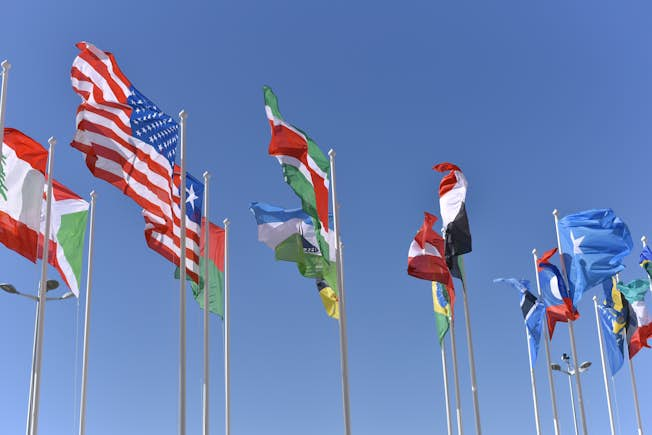
International expansion can help a business grow and develop. It can provide it with access to new resources and valuable new markets. Although it offers many benefits to an organization, it’s also associated with some challenges.
Benefits of international expansion
- More sales and market opportunities
- Increased market learning about new competitors, customers, or trends
- Reduced costs
- Access to a new pool of talent
- Reduced risk, as you rely on more than one micro-economic environment
- Gaining of international brand status
Challenges of international expansion
- Societal differences in terms of culture, behavior, and language
- Country differences in legal and regulatory matters
- Complexities in product management
- Complexities in people management
- Higher unit costs to the end user (in the case of non-investment entry methods
Most companies today have a global appeal. Demand for their products isn’t limited to a certain country, region, or culture. Whether a company develops and sells antivirus software or handmade jewelry, with the latest developments in ecommerce and international shipping, it often makes sense to consider selling on a global scale.

With any international expansion, it’s important to choose the country or countries you intend expanding into carefully.
When choosing a foreign market, it can be helpful to ask yourself these questions:
- Does my country have a good relationship with its neighboring countries?
- How similar or dissimilar is my country’s culture and language to those of my neighboring countries?
- Is culture a major component of my product? (The answer is usually ‘yes’ for food and fashion-related items, but it leans toward ‘no’ for durable goods and technology items.)
- Are the countries that are most similar to my own just across the border (as is the case with Germany and Austria) or thousands of miles away (as with the UK and Australia)?
- Does my business network extend beyond the borders of my country, and, if so, to where?
- Are any countries particularly attractive at the moment due to major announcements on taxation or investment?
- Are there any flagship countries for your product or market?
Choosing your market
When expanding for the first time, it’s generally advisable to enter markets that are very close to your own country in terms of proximity and culture. An inexperienced product manager in the UK is more likely to succeed in Ireland than in Bolivia. However, cultural and legal similarities are much more important than physical proximity. The same inexperienced product manager in the UK is more likely to succeed in Australia or Canada than in France.
If culture and proximity aren’t relevant, then you could consider tying your product or service to macro and micro economic factors. For example, you’re likely to find the same premium, luxury goods in Singapore, Switzerland, Hong Kong, and Norway. Although these countries are culturally and legally distant, they share a high standard of living and citizens of those countries enjoy higher than average incomes. Similarly, hairdressers offering 10-minute haircuts in train stations are usually found in cities with bustling fast-paced lifestyles such as Tokyo and New York.
Use a tool like the one we've developed for you below.
Market Expansion Toolkit
This tool is designed to help you work out and plan for expanding your business into other markets. It's designed to help you calculate according to these criteria:
- Political Stability
- Economic Position
- Psychic Distance
- Market Size
- Market Growth
- Product Fit to Market Demand
- Competitive landscape
- Intermediaries Availability
The tool explains each criterion, what you need to cover in each, and lists suitable sources you can use to gather the information you need, such as authoritative online publications and data banks.
Based on your research and findings you can score each criterion per country, and once you've collected the total score for each country you can then rank the countries.
The higest scoring country is the most attractive to your international venture.
This content is available to Power Members only.
Related Articles
Upgrade to Power Membership to continue
your access to thousands of articles, toolkits, podcasts, lessons and much much more.
Become a Power Member- Login
- View Courses
- - - -
- Courses
- Resources
- - - -
- My Account
- Change Password
- Logout





